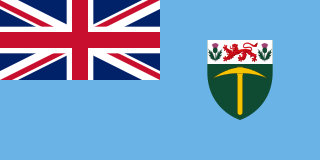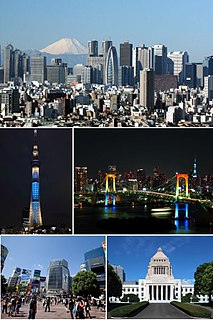
The 1972 Summer Paralympics, the fourth edition of the Paralympic Games, were held in Heidelberg, West Germany, from August 2 to 11, 1972.

Japan was the host country of the 1964 Summer Paralympics in Tokyo, which also marked its first participation in the Paralympic Games. It was the only Asian country to take part in the Games.

The United Kingdom of Great Britain and Northern Ireland, competing as Great Britain, participated in the inaugural Paralympic Games in 1960 in Rome. The 1960 Paralympics, now considered to have been the first Paralympic Games, were initially known as the ninth Stoke Mandeville Games, Games for athletes with disabilities founded in Great Britain in 1948.

A team representing Ireland has competed at every Summer Paralympic Games but the country has never taken part in the Winter Paralympics. Irish athletes have won 178 Summer Paralympic medals, 47 gold, 57 silver and 74 bronze. Paralympics Ireland is the National Paralympic Committee. Athletes from Northern Ireland may compete for either Great Britain or Ireland at the Paralympics, on the same basis as at the Olympics.

Rhodesia competed at the inaugural Summer Paralympic Games in 1960 in Rome. It was the only African country to take part. Rhodesia sent two competitors to the games, one of whom was Margaret Harriman, who competed in archery and swimming. Harriman won a total of five medals, placing her country 11th out of 17 on the medal table. She took gold in both the archery events she participated in, and won a silver medal and two bronze in swimming.

Puerto Rico made its Paralympic Games début at the 1988 Summer Paralympics in Seoul, with a delegation of twelve competitors in archery, athletics, shooting and table tennis. It has participated in every subsequent edition of the Summer Paralympics, but never in the Winter Paralympics.

Italy competed at the 1968 Summer Paralympics in Tel Aviv, Israel. The team finished seventh in the medal table and won a total of 39 medals; 12 gold, 10 silver and 17 bronze. Thirty-eight Italian athletes competed at the Games; thirty-three men and five women.

South Africa was one of twenty-eight nations that sent athletes to compete at the 1968 Summer Paralympics in Tel Aviv, Israel from November 4 to 13, 1968. The team finished tenth in the medal table and won a total of twenty-six medals; nine gold, ten silver and seven bronze. Eight South African athletes competed at the Games; five men and three women.

Japan competed at the 1968 Summer Paralympics in Tel Aviv, Israel from November 4 to 13, 1968. The team finished sixteenth of the twenty-eight competing nations in the medal table and won a total of twelve medals; two gold, two silver and eight bronze. Forty-eight Japanese athletes took part in the Games; forty-one men and seven women.

Ireland was one of twenty-eight nations to send a delegation to compete at the 1968 Summer Paralympics in Tel Aviv, Israel from November 4 to 13, 1968. The team finished nineteenth in the medal table and won a total of nine medals; four silver and five bronze. Seven Irish athletes competed at the Games, five men and two women.

Sweden was one of twenty-eight nations that sent a delegation to the 1968 Summer Paralympics in Tel Aviv, Israel from November 4 to 13, 1968. The team finished seventeenth in the medal table and won eleven medals: one gold, six silver and four bronze. Thirty-two Swedish athletes took part in the Games; twenty-seven men and five women.

Rhodesia competed at the 1968 Summer Paralympics in Tel Aviv, Israel from 4 to 13 November 1968. The team ranked eleventh out of the twenty-eight competing nations in the medal table and won a total of twenty medals; six gold, seven silver and seven bronze. Rhodesia competed at the Paralympics in 1968 and in 1972 despite being excluded from the Summer Olympic Games in those years.

Argentina was one of the nineteen nations that competed at the Summer Paralympic Games in 1964 held in Tokyo, Japan from November 3 to 12, 1964. The team finished eighth in the medal table with a total of thirty seven medals, six gold, fourteen silver and sixteen bronze. The Argentinian team consisted of twenty four athletes, eighteen male and six female.

Argentina sent a team to compete at the 1972 Summer Paralympics in Heidelberg, West Germany. They sent twenty one competitors, twelve male and nine female. The team finished twentieth in the medal table and won nine medals, two gold, four silver and three bronze.

Great Britain sent a delegation to compete at the 1972 Summer Paralympics in Heidelberg, West Germany. Teams from the nation are referred to by International Paralympic Committee (IPC) as Great Britain despite athletes from the whole of the United Kingdom, including those from Northern Ireland, being eligible. They sent seventy two competitors, forty seven male and twenty five female. The team won fifty-two medals—sixteen gold, fifteen silver and twenty-one bronze—to finish third in the medal table behind West Germany and the United States. Philip Craven, the former President of the IPC, competed in athletics, swimming and wheelchair basketball for Great Britain at these Games.

South Africa sent a team to compete at the 1972 Summer Paralympics held in Heidelberg, West Germany, from August 2 to 11. They sent twenty five competitors, twelve male and thirteen female. The team won forty-one medals—sixteen gold, twelve silver and thirteen bronze—and finished fourth in the medal table.

The 13th International Stoke Mandeville Games, later known as the 1964 Summer Paralympics, was an international multi-sport event held in Tokyo, Japan, from November 3 to 12, 1964, in which paraplegic and tetraplegic athletes competed against one another. The Stoke Mandeville Games were a forerunner to the Paralympics first organized by Sir Ludwig Guttmann in 1948. This medal table ranks the competing National Paralympic Committees (NPCs) by the number of gold medals won by their athletes.
Valerie Robertson is a British former Paralympic athlete who competed in archery, athletics, swimming, and wheelchair fencing, winning at least a silver medal in each. She won a total of six Paralympic gold medals at three Games. After completing her Paralympic career, Robertson had a very successful transition to wheelchair lawn bowling.

South Korea competed at the 2016 Summer Paralympics in Rio de Janeiro, Brazil, from 7 to 18 September 2016.

















